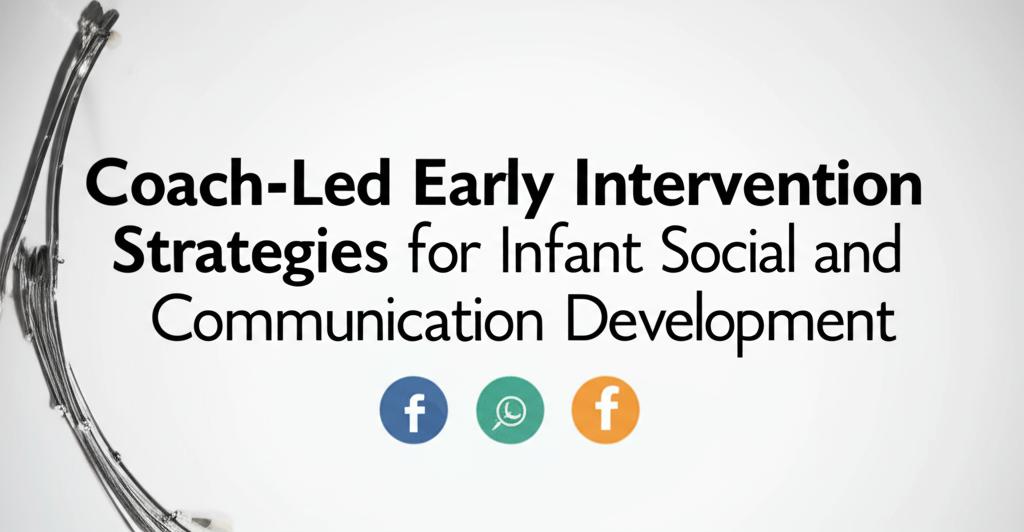New research highlights the significant impact of coach-led early intervention strategies on the social and communication development of infants, particularly those showing early signs of developmental delays. These approaches focus on empowering caregivers by providing them with targeted strategies and support, leading to improved outcomes for both children and families.
A key aspect of these interventions is the coaching of caregivers by trained professionals, such as developmental psychologists or speech-language pathologists. This coaching often occurs in the natural environment of the home, allowing strategies to be embedded into daily routines and interactions. The core idea is that infants learn best through everyday activities with their loved ones. Therefore, enhancing the caregivers' ability to support their child's development is paramount.
Key Strategies and Their Impact:Recent studies, including a trial from the Kennedy Krieger Institute published in May 2025, demonstrate that starting interventions before the age of one, even as early as 8 months, can lead to substantial improvements in communication and cognitive development. This early timing is crucial as it capitalizes on the high adaptability of the infant brain.
Effective coaching strategies include:
- Narrating Actions: Describing what an infant is doing (e.g., "You rolled the ball!") helps build language connections.
- Strategic Toy Selection: Choosing toys that encourage language, attention, and engagement.
- Promoting Joint Attention: Fostering the ability to share focus between an object and a person, a critical social skill. Infants in coaching groups have shown nearly double the gains in joint attention.
- Responsive Interaction: Teaching caregivers to recognize, interpret, and respond sensitively to their child's cues and communication attempts.
- Building Caregiver Confidence: Empowering parents and caregivers by affirming their role as their child's best language facilitator and building their confidence in using effective strategies.
Research consistently shows positive outcomes from coach-led interventions:
- Enhanced Caregiver Effectiveness: Caregivers who receive coaching become more effective in their interactions with their infants. One study noted a 20% increase in the use of targeted strategies by caregivers after the trial.
- Improved Infant Social Engagement: Infants in coaching groups demonstrate greater gains in face-to-face social interaction and nonverbal learning.
- Cognitive and Communication Growth: Significant improvements are seen in babies' overall communication and cognitive development.
- Lasting Effects: The benefits of these interventions have been shown to last for at least eight weeks post-intervention.
The coaching model is typically a collaborative and interactive process. It often involves:
- Joint Planning: Professionals and families work together to set goals based on the family's priorities and the child's needs.
- Observation: The coach observes caregiver-child interactions to tailor advice.
- Action/Practice: Caregivers implement strategies during everyday routines, with the coach providing guidance.
- Reflection: Caregivers and coaches discuss what worked, what was challenging, and how to refine approaches.
- Feedback: The coach offers supportive and constructive feedback.
This approach shifts parents from passive observers to active leaders in their child's developmental journey. It builds their capacity to support their child's communication development through responsive interaction strategies within familiar, everyday contexts.
Importance of Early Intervention:Social communication delays can be early indicators of conditions like autism spectrum disorder. Traditionally, many interventions don't begin until a child is 2 or 3 years old. However, the evidence strongly supports starting interventions in the first year of life when the brain is most malleable. This proactive approach can prevent more significant delays from taking hold and set a positive trajectory for lifelong outcomes.
While the benefits are clear, scaling personalized coaching can present challenges, including the availability of trained professionals and the cost to families. However, the long-term benefits for children's development and family well-being underscore the importance of continued research and investment in these coach-led early intervention strategies.

